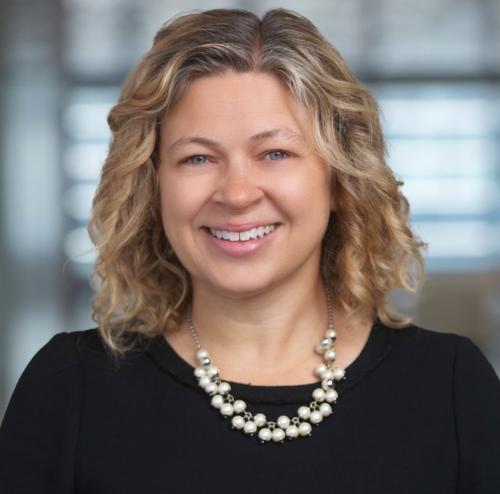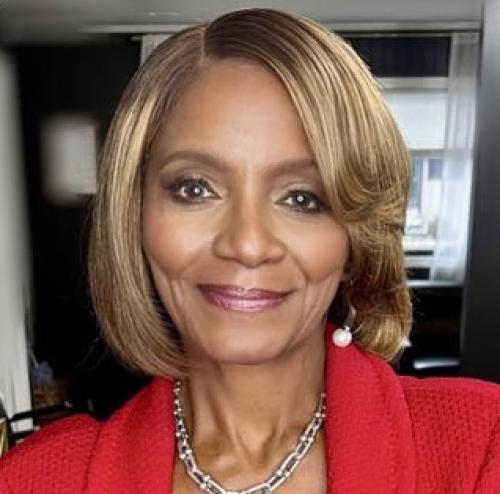Wendy Mahling of Xcel Energy talks about climate change risk disclosure, dealing with carbon dioxide regulation and the importance of effective collaboration with experts
Former vice president Al Gore’s documentary An Inconvenient Truth – or as talk show host Stephen Colbert jokingly called it, ‘the highest-grossing PowerPoint presentation in history’ – may have pushed the global warming debate into the hot seat but, in terms of disclosing business-related risks posed by climate change, Xcel Energy has been at the forefront.
A little less than two years ago, shortly after assistant general counsel Wendy Mahling joined the energy firm, Xcel was settling a dispute with the New York Attorney General’s (NYAG) Office, which the NYAG billed as the ‘first ever binding and enforceable agreement requiring a company to detail financial liabilities related to climate change’. The stipulations of that agreement included, as Mahling puts it, ‘many of the things that were touched upon in the guidelines issued by the SEC last February.’
When it comes to drafting, ‘it really is a cross-functional job,’ Mahling says. In addition to herself, the general counsel and the finance department, Mahling pulls together environmental attorneys, members of the environmental services and policy division, the controller’s office, external reporting and investor relations. ‘Reaching out to your subject-matter experts is critical,’ she points out. ‘Certainly, that’s not my area of expertise, so you have to work with other people in the organization to help them understand what the requirements are and make sure everyone is thinking about it from all the right angles.’
One particularly thorny requirement involves surveying the proposed regulatory and legislative changes and assessing which are likely to pass and what the ramifications could be. ‘The biggest challenge is the uncertainty around the regulatory treatment of carbon dioxide,’ says Mahling. ‘Will there be legislation? If so, what will it look like? Maybe one bill looks like it will pass and then doesn’t. So when you don’t know what’s ultimately going to be implemented, how do you describe the impact upon a company?’
A heavy load
Climate change disclosure aside, simply keeping up with the ever-increasing regulatory and legislative proposals is a job in itself, as many other governance professionals can probably attest. When it comes to sector-specific challenges, Mahling says: ‘We’re regulated every which way; there is a lot of change going on in the energy field right now.’
The SEC’s and Congress’ recent spurt of activity isn’t exactly doing anything to ease the workload, either. Piecing together who the regulators are and which business lines they impact upon is indeed a challenge, and one that Mahling admits was somewhat daunting when she first made the move into the energy sector. ‘Every day I’m still amazed at the complexity of what we do here,’ she says. That said – and fortunately for Xcel – it is precisely this variation that Mahling enjoys. ‘It’s fascinating to find out about all of the different things that are going on here,’ she adds.
Mahling must stay abreast of the issues not only for herself, but as part of her duties to the board members as well. ‘A big part of what we’ve been doing right now is making sure we’re keeping the board up to date on what’s out there and how it might impact our company if these proposals come to fruition,’ she says.
This means both sides are taking a more proactive approach. ‘Board members are asking more questions of management, and we’re trying to proactively inform them as well,’ Mahling says. In addition, presentations to the board now regularly include proposed governance changes; before the recent spike in activity, such updates were typically given only once a year.
As is the common refrain among governance professionals, time management is always a challenge. ‘I put cleaning my office at the bottom of my list of priorities,’ Mahling jokes.
She says nothing is more helpful than networking with her peers, in particular when it comes to benchmarking. ‘Being active in the Society of Corporate Secretaries and Governance Professionals has been really critical for me,’ she notes. ‘It is nice to have a group of people you can bounce some of these issues off of, and ask questions like, What are you doing with respect to this disclosure? There’s not necessarily going to be a specific answer there, but it’s really helpful to understand how people are thinking about it.’
On Target
Mahling joined Xcel Energy from Target, where she worked in the retail giant’s corporate law department. ‘It’s a great company,’ she says of the experience. ‘It was fun, fast and friendly.’ One fun perk was the freebies. ‘If the firm was launching a new line of Archer Farms soda, for example, it would let us be the guinea pigs!’ she recalls. Target was Mahling’s first in-house gig, and she says she is grateful to the company for easing her transition out of private practice.
Perhaps the pursuit of law – and even corporate law – is indeed a calling for some; it certainly seems so in Mahling’s case. Even when she entered law school, she wasted little time entertaining alternative legal fields. ‘I wasn’t absolutely set on corporate law,’ she admits. ‘I did think for a while that I wanted to be a litigator, but for me corporate law is a really good fit.’
What Mahling has really come to enjoy about in-house work, and an important area of experience she gained at Target, is the chance to see projects develop from the very beginning to the finished product.
‘When things finally get to a law firm they are already pretty well shaped,’ she explains. ‘I’m now learning how to be effective on the front end, when the ideas are still being kicked around and people are discussing whether or not we should do this. I like being part of the creative process and at the end having something you’ve done that you can point to: that proxy statement is done, we got the board elected. There are also policy issues that come into play in corporate law quite a bit, and I find that intersection of disciplines fascinating.’
Global citizen
Policy, as it turns out, is an area of particular interest to Mahling; she even spent a summer interning for the United Nations. Although she says she can’t imagine doing anything besides law, if push came to shove and she had to point to an alternate career, she says, ‘I would probably enjoy a policy-making job. I suppose working for the State Department, with my interest in international areas, would be interesting. It would have to be something that would meld the policy interests I have with my love of international work.’
Perhaps some of Mahling’s interest in foreign affairs comes from her rather extensive traveling. Between college and law school, she spent a summer living with a family in Siberia. ‘This may come as a surprise to some, but Siberian summers are actually beautiful,’ she says. It was an interesting time to be in Russia. ‘It was the early 1990s and things were changing so rapidly from the communist economy to the free market economy, it was just fascinating to be there and see it,’ Mahling adds. The food sounds pretty good too: ‘It was strawberries with cream everyday.’
International relations aside, for now Mahling’s immediate goal is to just ‘get through this annual meeting,’ she laughs. So what happens afterward? ‘Everything I’ve put off,’ she replies.








